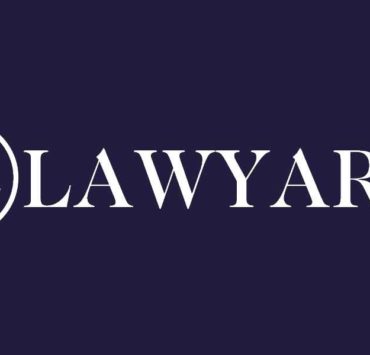The Public Officers Protection Act and the Supreme Court’s Ruling in CIL Risk & Asset Management Ltd v. Ekiti State Government— by Moruff O. Balogun

Chukwudi Onyewuchi is a graduate of Geology from Obafemi Awolowo…
Summary of Facts
Sometime in the year 2007, the 1st respondent granted to the appellant title to a parcel of land measuring 26,672 hectares along Ikare Road, Ado Ekiti for the purpose of building a five star hotel. As evidence of the grant, a Certificate of Occupancy was issued to the appellant in the year 2008. Subsequently, the Certificate of Occupancy was withdrawn and another one was issued in its place in the year 2011, but registered in the year 2012. Both certificates contained terms and conditions including a term requiring the appellant to pay annual rent in the sum of N691, 450.00 (six hundred and ninety one thousand, four hundred and fifty Naira) in relation to the certificate of 2008 and the sum of N6.668,000.00 for the certificate of 2011.
Also included in the terms of the grant was that the appellant must erect and complete a building on the land in line with Government approved building plans within 2 years of the issuance of the Certificate of Occupancy. The appellant failed to comply with the terms of the grant particularly as it related to the payment of ground rent and development of the land within 2 years of the issuance of the Certificate of Occupancy, consequent upon which the 1st respondent, by a notice of revocation dated 16th October 2014, revoked the appellant’s right of occupancy and subsequently granted it to the 4th respondent.
In October 2016, the notice of revocation was published in a newspaper. Aggrieved that the notice of revocation was served or made known to it through the newspaper, the appellant commenced an action at the High Court of Ekiti State challenging the revocation.
The appellant pleaded that it erected a fence on the land between February and April 2015 but failed to plead payment of ground rents from 2007- 2012. On being served with the writ of summons and statement of claim, the 1st – 3rd respondents filed a preliminary objection challenging the competence of the action on the following grounds: that the action was statute-barred having been commenced outside the three months period stipulated by section 2 of the Public Officers (Protection) Act, as the 1st to 3rd respondents made the revocation via letter dated 16th December, 2014 for the reason that the claimant breached Paragraph 4 of the Certificate of Occupancy: and
that the action disclosed no reasonable cause of action.
The 4th respondent also filed a preliminary objection along the same terms. The appellant filed a counter-affidavit denying receipt and or service on it of any notice of revocation in December 2014. The 1st – 3rd respondents filed a further affidavit and attached exhibit F”, a receipt evidencing payment for dispatch of the notice of revocation and exhibit “FBAl” proof of delivery of the notice of revocation.
Before the hearing of the objections of the respondents, the appellant filed an application which in content was an objection challenging the respondents preliminary objections. The trial court heard and upheld the respondents preliminary objections on the grounds that by virtue of section 2(a) of Public Officers (Protection) Act the suit was statute-barred having not been filed within 3 months after the revocation and that the suit did not disclose reasonable cause of action.
Dissatisfied with the ruling of the trial court, the appellant appealed to the Court of Appeal. The Court of Appeal dismissed the appeal and upheld the decision of the High Court that the appellant was indeed served with the notice of revocation in December 2014 and as such the action was statute-barred.
Aggrieved by the decision of the Court of Appeal, the appellant appealed further to the Supreme Court. In determining the appeal, the Supreme Court considered the provisions of section 2(a) of the Public Officers (Protection) Act and sections 28(1), (4), (6), (7) and 44(a) – (e) of the Land Use Act which provide as follows:
Section 2(a) of the Public Officers (Protection) Act
- (2) Where any action, prosecution, or other proceedings is commenced against any person for any act done in pursuance of execution or intended execution of any act or law or of any public duty, or authority or in respect of any alleged neglect or default in the execution of any such act, law, duty or authority, the following provisions shall have effect; the action, prosecution, or proceedings shall not lie or be instituted unless it is commenced within three months next after the act, neglect or default complained of, or in case of a continuance of damage or injury, within three months next after the ceasing thereof.”
Sections 28(1), (4), (6), (7) and 44(a) – (e) of the Land Use Act
- 28(1) It shall be lawful for the Governor to revoke a right of occupancy for overriding public interest.
- (4) The Governor shall revoke a right of occupancy in the event of the issue of a notice by or on behalf of the President if such notice declares such land to be required by the Government for public purposes.
- (6) The revocation of a right of occupancy shall be signified under the hand of a public officer duly
authorised in that behalf by the Governor and notice thereof shall be given to the holder.
(7) The title of the holder of a right of occupancy shall be extinguished on receipt by him of a notice given under subsection (6) of this section or on such later date as may be stated in the notice. - (44)Any notice required by this Act to be served on any person shall be effectively served on him –
by delivering it to the person on whom it is to be served; or
by leaving it at the usual or last known place of abode of the person; or
by sending it in a prepaid registered letter addressed to that person at his usual or last known place of abode; or
In the case of an incorporated company or body, by delivering it to the secretary or clerk of the company or body at its registered or principal office or sending it in a prepaid registered letter addressed to the secretary or clerk of the company or body at that office; or
If it is not practicable after reasonable inquiry to ascertain the name or address of a holder or
occupier of land on whom it should be served, by addressing it to him by the description of holder or “occupier” of the premises (naming them) to which it relates, and by delivering it to some person on the premises to whom it can be delivered, by affixing it, or a copy of it, to some conspicuous part of the premises.”
Held: Unanimously allowing the appeal:
The Supreme Court raised and considered the following issues:
- On Whether Public Officers (Protection) Act applies to public officers in the service of a State: The Public Officers (Protection) Act, Cap. P41, Laws of the Federation of Nigeria, 2004 (updated up to the 31 day of December, 2010) enacted pursuant to Item 53 on the Exclusive Legislative List and section 4(2) and (3) of the Constitution of the Federal Republic of Nigeria, 1999, as amended, applies only to protect public officers in the “public service of the Federation”. It has no general application such as to apply or offer protection to public officers in the service of Ekiti State or any other State in the Federal Republic of Nigeria. The public service of Ekiti State is a matter within the residual list, meaning that it is neither in the Exclusive Legislative List set out in Part 1 of the
Second Schedule to the Constitution nor on the Concurrent Legislative List set out in the First Column of the Second Schedule to the Constitution. It follows therefore that the public service of Ekiti State being a residual matter, by virtue of section 4 (6) and (7) of the Constitution 1999, as amended, only the Ekiti State House of Assembly, to the exclusion of the National Assembly or any other State House of Assembly, can constitutionally legislate on it. The respondents could not resort to the Federal statute, the Public Officers (Protection) Act, to seek a statutory defence for officers in Ekiti State Public service. - On When public officer not protected under Public Officers (Protection) Act: The Public Officers (Protection) Act is designed to protect the officer who acts in good faith and does not apply to acts done in abuse of office and with no semblance of legal justification. The act will not apply if it is established that the defendant abused his position for purposes of acting maliciously. In that case, he has not been acting within the terms of statutory or other legal authority. He has not been bona fide in endeavoring to carry it out. In such a state of facts, he has abused his position for the purpose of doing a wrong and the protection of the Act never could apply to such a case. Thus, abuse of office and bad faith are factors that can deprive a party of the protection of section 2 (a) of the Public Officers (Protection) Act that he would otherwise have been entitled to. The protection enjoyed by public officers under the Public Officers (Protection) Act is not automatic. The law does not automatically protect any public officer who had abused his position. Therefore, a court should not immediately dismiss an action on the ground only that the action commenced against a public officer was filed outside three months from the date of accrual of the cause of action. The court has to be satisfied that the act executed by the public officer was not done in bad faith or did not amount to abuse of office, that is to say using the power to achieve personal gain, to show undue favour to another or to wreak vengeance on an opponent, or exercised in breach of his statutory or constitutional duties.
- On Object of Public Officers (Protection) Act: The Public Officers (Protection) Act is intended as much as within the limits of the law to protect a public officer from detraction and unnecessary litigation, but never intended to deprive a party of legal capacity to ventilate his grievance in the face of stark injustice.
- On Scope of Public Officers (Protection) Act and whether applies in land and breach of contract cases: The protection afforded public officers under the Public Officers (Protection) Act does not apply in cases of recovery of land. It does not also apply to cases founded on contract, or breach of contract. Indeed, section 2(a) of the Public Officers (Protection) Act was inapplicable to the instant case because the matter pertained to land and breach of contract which are exceptions to the applicability of that provision.
Courtesy:
Moruff O. Balogun Esq.
IJEBU ODE, OGUN STATE.
08052871414.
Chukwudi Onyewuchi is a graduate of Geology from Obafemi Awolowo University. He enjoys writing and is passionate about what he does. Hence, he always puts in all of his efforts towards attaining good results and sharing stories that will impact readers and the world at large.














